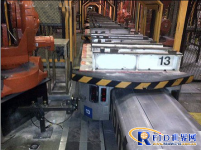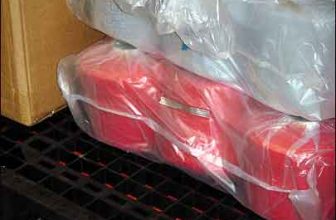
Nemak uses RFID technology to track the production process of engine blocks
[ad_1]
The aluminum engine block is cast by a mold, and the quality of the mold is tracked throughout the assembly process to ensure that there is no defect in the engine block that reaches the consumer. In order to achieve the above goals, auto parts manufacturer Nemak uses high-frequency RFID technology to automatically track the production and assembly process. The RFID tracking system is provided by Balluff Inc., which mainly writes the sensor data of the automatic assembly process into the high-frequency RFID tag. Before the aluminum liquid enters the mold, it is judged whether the mold is defective.
Nemak company produces a variety of train parts, including cylinder heads, engine blocks and transmission parts. Tracking the process of designing every step of the mold casting, using automatic identification technology, located in the Windsor, Ontario factory.

Nemak needs to install a complex sensor network including RFID readers for its engine assembly line. The mold is composed of a mixture of sand and resin, and its assembly process is extremely demanding. The assembly process is carried out on a 300-meter-long circular production line. Any error in any place will affect the integrity of the engine block. Because it is an automatic production line, defective molds are not easily found before the RFID tracking system is installed.
The RFID solution called Balluff System was implemented in September 2012, including a BIS V processor and a four-port RFID reader. Among them, the BIS V processor can be linked to the programmable logic controller (PLC) of the device, which can also store sensor data.
Each new mold is assigned a serial number, which is stored in Nemak’s back-end database. There are 52 self-powered containers on a monorail assembly line, and the mold is placed in one of them. A series of sensors (visual or laser detection system) are installed along the assembly line to detect the position of the container, whether it is aligned or not, and other production assembly indicators. The data collected from the sensors is finally evaluated by the PLC.
Each container is equipped with a Balluff 13.56 MHz high-frequency RFID tag, which complies with the ISO 15693 standard and has a storage space of 2 kilobits. Along the production line, the ID code of the tag is first read by the first Balluff BIS V reader installed on the production line, a total of 18 sets are installed.

At each station, the RFID tags of the containers are read. At every step of the casting process, sensor data is written into the tag. When the mold reaches the end of the production equipment line, the container label is read for the last time, and data processing is used to determine whether there is an error data written to the label. If there is an error, the production assembly line is automatically closed and an alarm is issued. At this time, the staff will discard the mold or re-operate to deal with the problem. In addition, the specific place where the error occurred can be detected based on the alarm.
At each workstation, a Balluff RFID reader antenna is installed to read the ID number of the RFID tag installed on the container, and encode the relevant information into the tag.
At the last stop of the production assembly process, RFID data is read and stored in Nemak’s back-end database, and is associated with the serial number originally created by the mold. Then, the label information is erased and the container is reused to cast other parts.
The adoption of the RFID tracking system greatly guarantees the quality of the engine block. The company plans to also use the system on newly added production assembly lines. In addition, the company tried to expand the tracking scope beyond the production assembly line. Once the mold leaves the assembly line, it enters the molten aluminum casting area. The only concern at present is that the RFID tag cannot withstand the high temperature environment of 400-500 degrees Celsius.
[ad_2]




